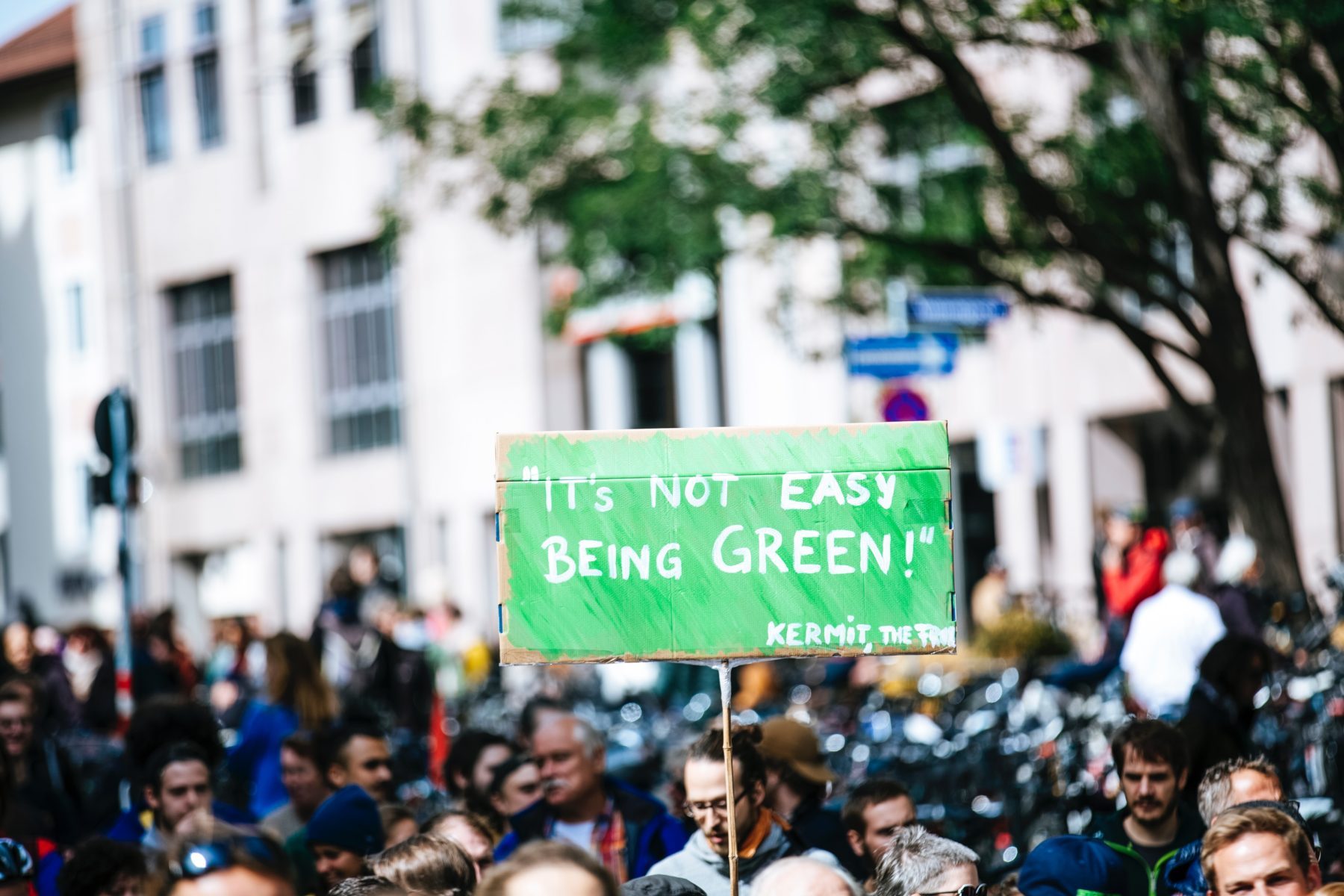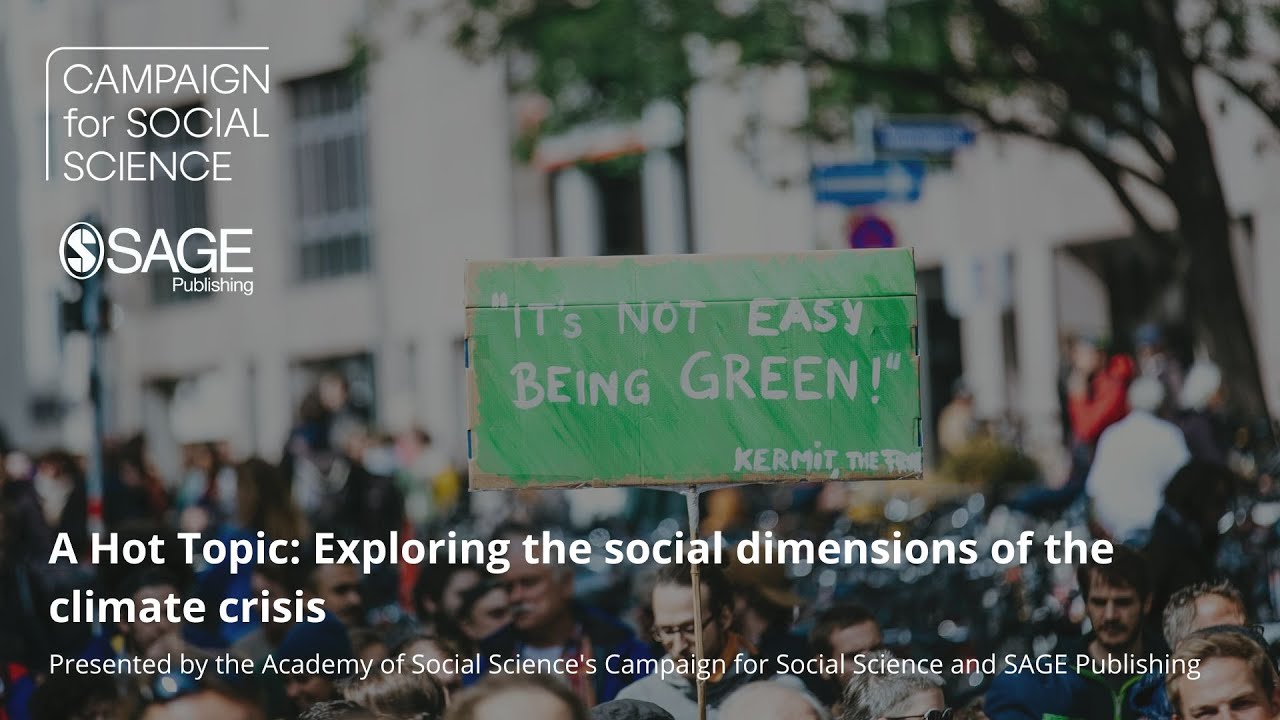In this free online event run by the Campaign for Social Science in partnership with SAGE Publishing we explored the urgent need to combine both social and technological solutions to address the challenges of climate change.
During the event Professor Patrick Devine-Wright, Professor in Human Geography at University of Exeter and Director of ACCESS (Advancing Capacity in Climate and Environment Social Science) outlined the value of social science in the debate, explaining that the UK in particular has world class social scientists and that the ACCESS project will work to increase their influence within the agenda, including increasing the opportunities for cross-disciplinary work. Patrick also emphasised the urgency of the situation saying that we must ‘mobilise now’ for a ‘Decade of Action’. He described the need for behavioural change in institutions, communities and among individuals, and a need to better use and understand the data we already have available.
Professor Lorraine Whitmarsh, Professor of Environmental Psychology at the University of Bath and Director of the Centre for Climate Change and Social Transformations (CAST) described the need for public engagement with climate change and spoke about the extensive evidence demonstrating a need for a societal transformation. Lorraine highlighted that 60% of the measures required to achieve net zero require change by consumers, for example in transport usage and diet. Lorraine also emphasised that public concern has been growing in recent years. In the UK around 84% of people say they are concerned about climate change and around 73% say they have a personal role to play through changing some of their own behaviour.
Lord Deben, Chairman of the Climate Change Committee stressed the need to enable behaviour change naturally and warned that sometimes the green movement uses approaches that are off-putting to the general public. Lord Deben also stressed the importance of communicating clearly suggesting that often people don’t understand the evidence or the terminology that is used. He added that it is essential to ensure that the evidence presented is robust and that we get the facts straight.
Shaun Spiers, Executive Director, Green Alliance described the importance of bridging the gap between research evidence and policy, including the need to test the feasibility and effectiveness of policy. He emphasised the need for environmental and social groups to form coalitions and to engage with the public when building cases to put to policymakers.
Lord Adair Turner, Chair of the Energy Transitions Commission explored the tensions between techno-optimism and behaviour change, suggesting that technology might solve some of the issues we face but not all. Diet, and specifically red meat consumption, being an area where behavioural change is needed. Lord Turner called for a ‘balanced pathway to net zero’.
You can see the full presentations and hear the discussions by watching the video below.

